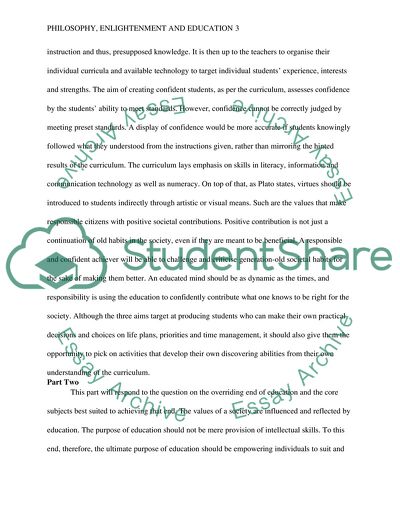Cite this document
(“Philosophy, Enlightenment and Education Essay Example | Topics and Well Written Essays - 1750 words - 1”, n.d.)
Retrieved from https://studentshare.org/education/1616045-philosophy-enlightenment-and-education
Retrieved from https://studentshare.org/education/1616045-philosophy-enlightenment-and-education
(Philosophy, Enlightenment and Education Essay Example | Topics and Well Written Essays - 1750 Words - 1)
https://studentshare.org/education/1616045-philosophy-enlightenment-and-education.
https://studentshare.org/education/1616045-philosophy-enlightenment-and-education.
“Philosophy, Enlightenment and Education Essay Example | Topics and Well Written Essays - 1750 Words - 1”, n.d. https://studentshare.org/education/1616045-philosophy-enlightenment-and-education.


